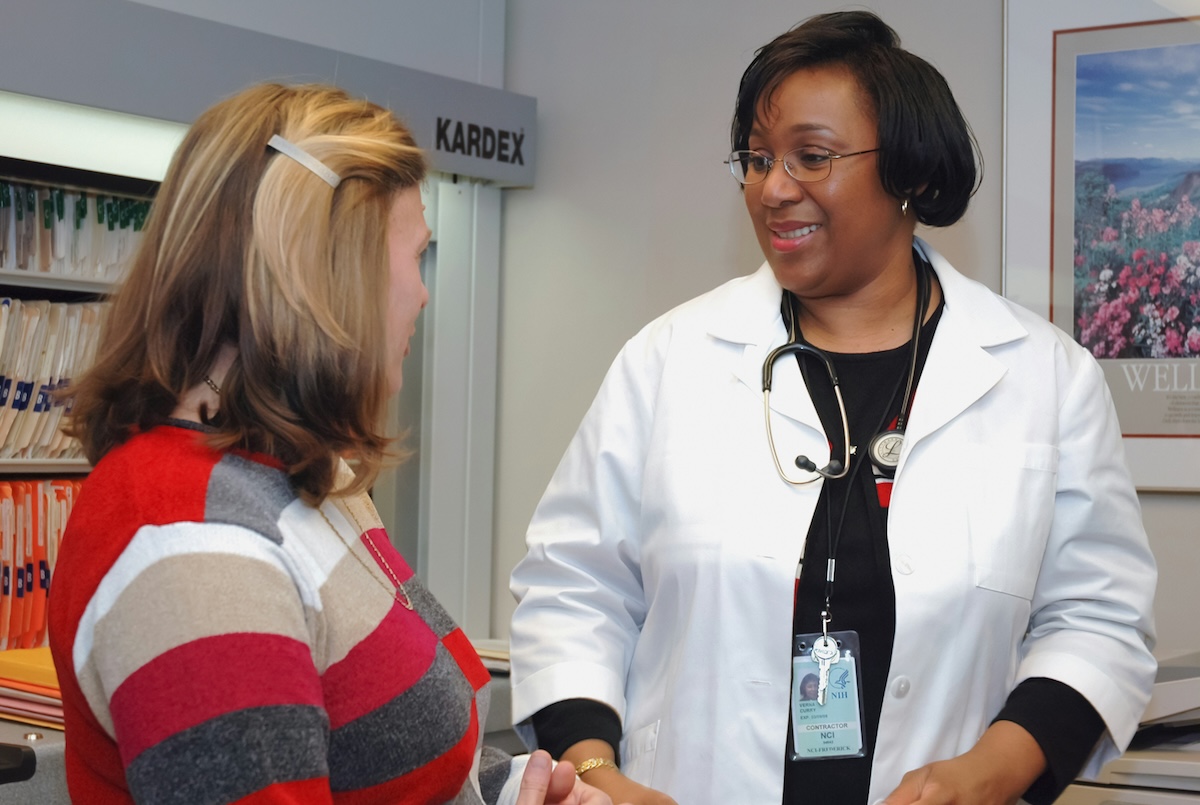I have always been concerned with precision. I was one of those children who closely followed classroom rules. Before I went to medical school, I trained as a journalist. I enjoyed choosing just the right word that meant exactly what I hoped to say. Being precise has allowed me to communicate well — a skill I use both in writing Hot Flash and in my day job communicating with patients.
Recently I have been asked more about this attention to detail, particularly as it relates to medical terminology. Medical terms often make the leap from jargon to common vocabulary. When they do, their meaning sometimes shifts in subtle and not so subtle ways.
My favorite example, albeit an extreme one, is “hysteria.” Coined in ancient Greece, it originally described how a woman’s womb, her uterus, would roam around her body making her crazy. The cure was pregnancy. Obviously we use this term quite differently today, in part because we now know “wandering womb” is not a real medical problem and in part because its meaning over time has shifted — slightly.

Two more recent examples are Hashimoto’s disease and perimenopause. In common vernacular, Hashimoto’s disease means an underactive thyroid, but in medicine Hashimoto’s disease is an autoimmune process. An underactive thyroid may be the result of Hashimoto’s disease.
Similarly, perimenopause has come to refer to all the changes that happen in the later part of a woman’s reproductive life prior to her last period. Technically, perimenopause is a part of that process. It is preceded by the late-reproductive stage and is itself divided into two stages, early and late perimenopause. Each one of those stages has a precise definition.
Why do definitions matter?
Am I just being persnickety when I insist on using language precisely? I don’t think so. Using medical terminology precisely is important for three reasons: Using the right words helps us communicate more effectively. It makes distinctions that help people understand what is normal and what is abnormal so they can seek care appropriately. And naming what a patient is experiencing is validating.
Using precise language helps us communicate more effectively
Suppose you come into my office to discuss treatment during perimenopause. Yes, we talk about your symptoms, but we will also figure out based on your recent periods what stage of perimenopause you are in. Once we do that, I can give you a lot more specific information about what to expect in the coming weeks, months, and even years.
If you are in late perimenopause, meaning you have gone at least 60 days without a period, I can tell you that you will likely have your last menstrual period in the next three years. You are also most likely to experience hot flushes and night sweats during that time. We will discuss your options for managing those symptoms.
Now imagine you are seeing me to treat your menopausal symptoms. You tell me you had surgical menopause — your ovaries were removed. With one phrase, you have given me several pieces of information that will facilitate our conversation.
I know that women who experience surgical menopause often have more severe symptoms. Surgeons remove ovaries for a reason; why your ovaries were removed may inform what treatments are safe for you. Women who experience surgical menopause are younger than those who go through menopause naturally, so protecting bone and heart health are of increased importance. Two specific words convey a wealth of information.
Precise language helps people know what is normal
The perimenopausal transition encompasses the late-reproductive stage, early and late perimenopause, and early and late menopause. It can span 20 years of a woman’s life. Imagine you are a 37-year-old woman and you have been told perimenopause can begin as early as 37. Your periods start to become irregular, but you assume that is a normal change of perimenopause and you don’t mention it to your doctor.
Now imagine that you are 37 but you know that women in their late 30s and early 40s are often entering the late-reproductive stage. You know that in the late-reproductive stage, periods can change but they should still be regular — that is, there are the same number of days from the first day of one period to the first day of the next over several months.
Your periods start to become irregular, and you go to your doctor for an evaluation because you know that irregular periods are not normal and should be evaluated. Using precise language has allowed you to identify a potential health problem and seek care promptly.
Naming is validating
I first started thinking about the importance of language in my medical practice after seeing a string of women who were having the same symptoms that I was having. Our periods were more closely spaced and heavy but regular. Our PMS symptoms were worse than they had ever been, and chief among them was breast tenderness that we had not experienced since pregnancy.
They had seen their gynecologist and had blood work done and been told they weren’t in perimenopause; they were “just in their 40s.” I did what any doctor does (we are terrible patients) and ordered my own blood work. My follicle-stimulating hormone was normal. I too was “just in my 40s.”
Then I started reading about the late-reproductive stage. It described my symptoms exactly, and having a name for what I was experiencing felt so much better than “just being in my 40s,” even though I still had all the same symptoms. I started sharing my knowledge of the late-reproductive stage with my patients. Their faces relaxed in relief when they understood that their experience had a name and it was a normal stage in our reproductive lives.
It was that experience — watching women like me experience validation and relief — that made me want to share my knowledge with women beyond my medical practice, in Hot Flash. Language is powerful, and using language precisely helps us all communicate more effectively, know when to worry and when not to, and experience validation. Given all that, isn’t it worthwhile to use the right words?
Community Guidelines













Log in
Speaking of vocabulary, my (male) physician told me I was experiencing perimenopausal syndrome. Something about the word “syndrome” connotes “insane” to me. I’d never heard that before and wasn’t a fan. Is that a typical way to describe perimenopause?
I just love this so much. People get their periods, they get pregnant and there is recovery, and for these things there is a chunk of information out there. But everything after seems so nebulous and lumped into the term “menopause,” but there is so much happening in between and it is a process. Can’t wait to keep reading. I’ve already checked off menstruation, pregnancy, and postpartum recovery. I’m always trying to learn more about what comes next.